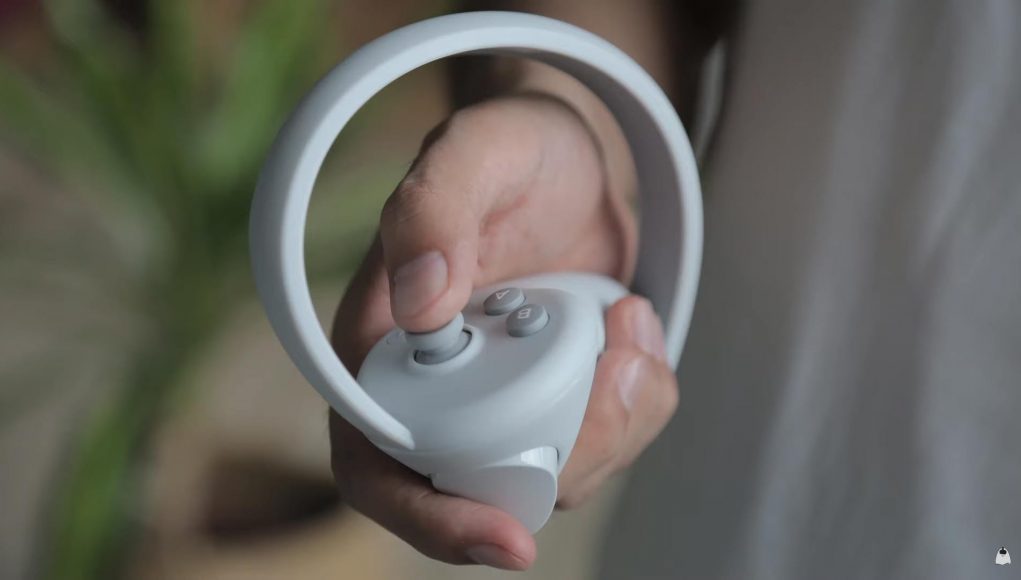ByteDance’s Pico Interactive is getting ready to launch a new line of standalone VR headsets soon looking to compete with Meta, dubbed Pico 4 and Pico 4 Pro. Now a leak has allegedly revealed Pico 4’s controllers, and they look to be a significant step forward in terms of ergonomics.
The news comes courtesy Antony Vitillo, AR/VR developer and editor over at SkarredGhost, who received the images of the controllers from a community member after having initially covered the FCC filing for Pico 4 that popped up late last month. The images appear to be marketing material, or maybe late stage internal photos of actual devices.
Here you can see the button layout, which looks very similar to Quest’s, including a trigger, joystick and A-B buttons. So much is standard nowadays in VR controllers, although Pico seems be switching up the formula a bit.
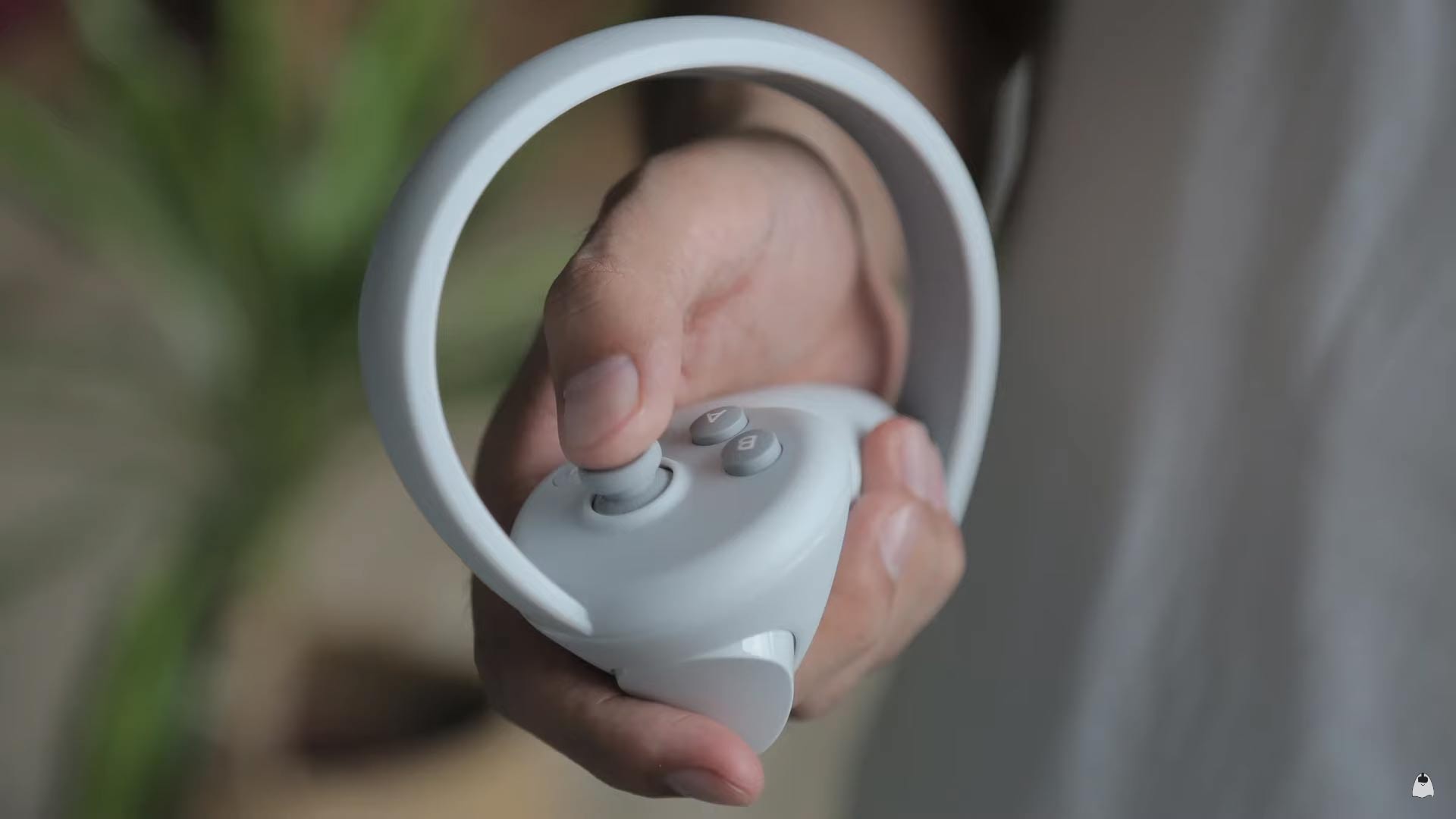
Provided the images are representative of the actual device, it also seems Pico 4 will optically track its controllers thanks to the inclusion of an infrared tracking ring.
Unlike Quest however, the ring has more of a diagonal design that connects from the top to the base of the device. Here we get a better look at the overall design and additional buttons, including the grip triggers and dual system buttons.
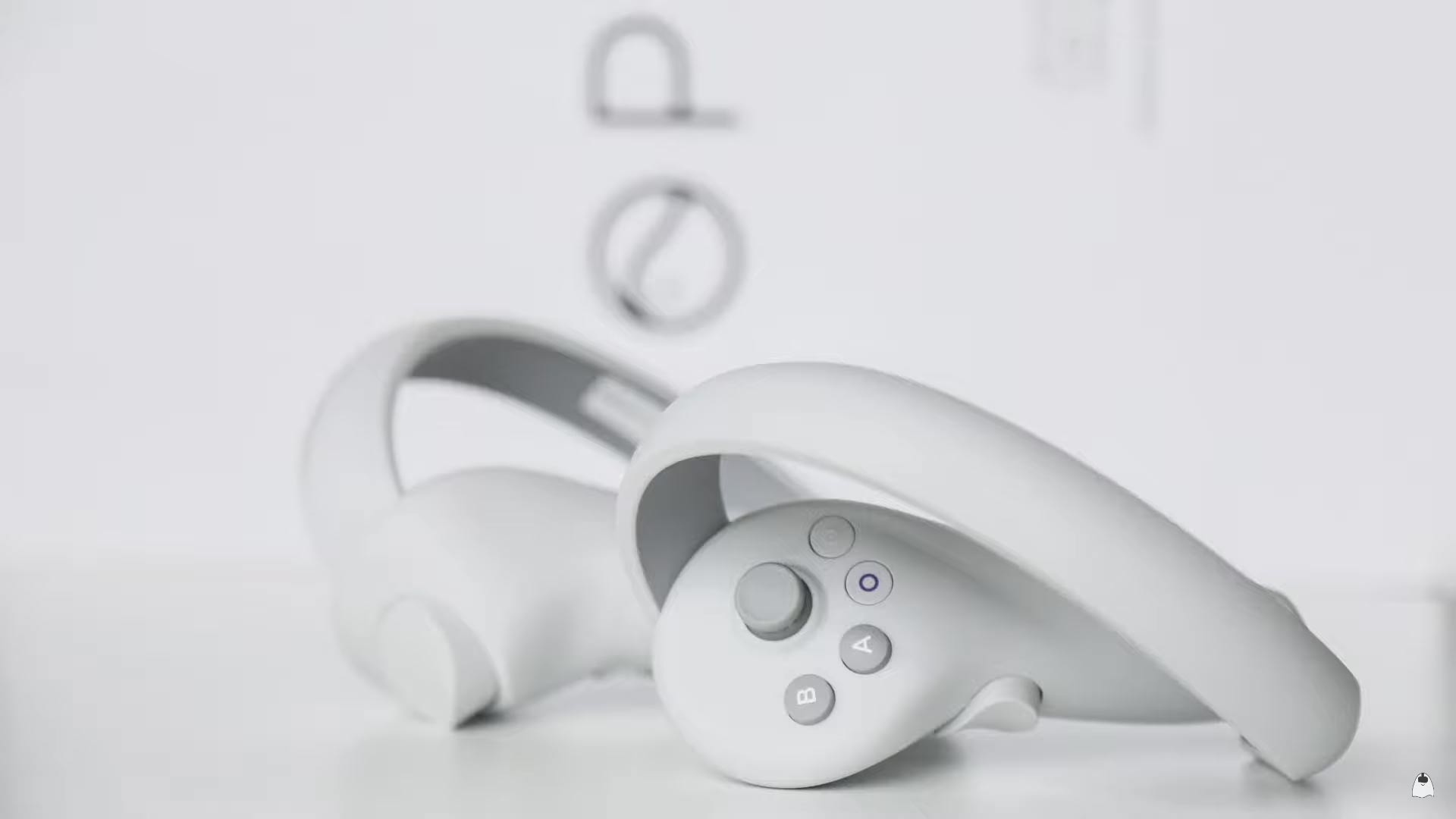
As Vitillo mentions in the SkarredGhost exclusive, previous Pico controllers were much more wand-like, and were very much concentrated on function over form.
Shifting the ring from Quest’s horizonal orientation to more of a vertical swoop may provide better balance to the controller, and may also help users better differentiate when grabbed blindly. Its more gentle curves on the controller face also look less sharp in comparison to Quest’s controllers.
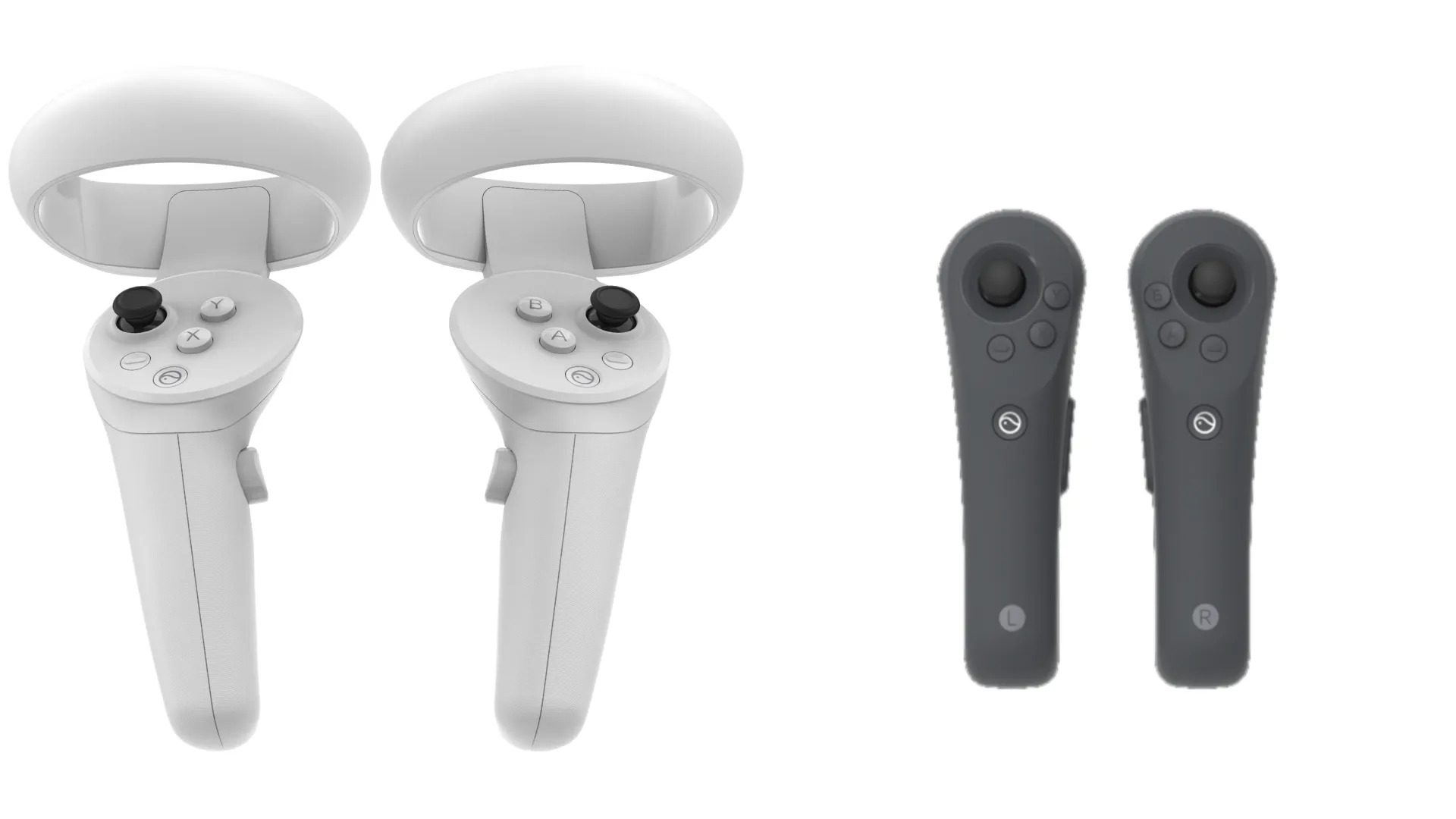
It’s not clear when Pico plans on launching the device, although the allegedly leaked images and very real FCC filing would suggest it’s fairly close.
Some healthy speculation: both Pico 4 and Pico 4 Pro are said to be identical in specs, however Pico 4 Pro includes eye and face-tracking, which may position the latter to better compete with Meta’s upcoming Project Cambria, or what may be called ‘Quest Pro’. Project Cambria is said to arrive sometime this year, so the clock is ticking.
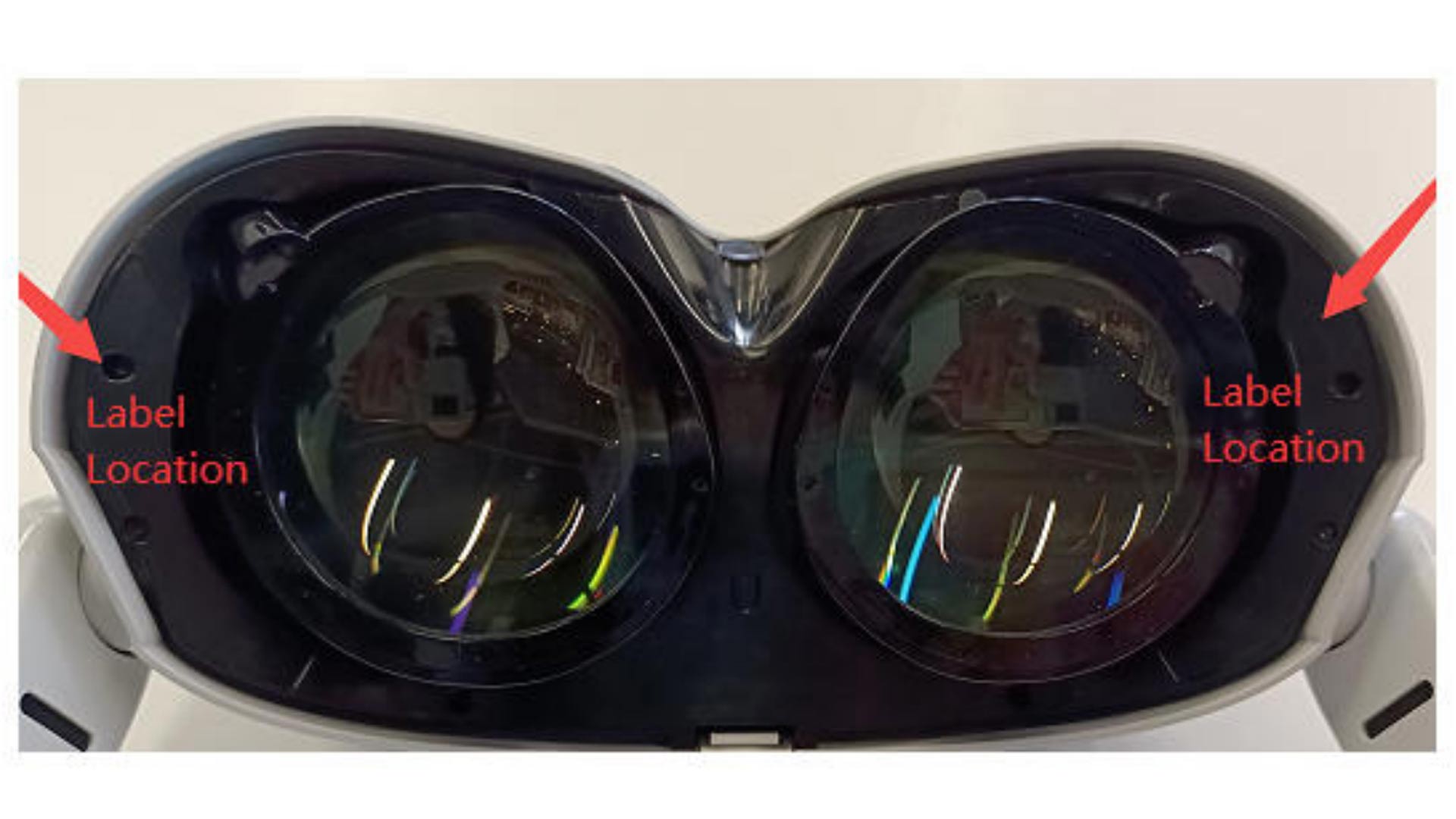
And Pico probably has high hopes for Pico 4 too, its first consumer headset to come to Meta’s North American stomping grounds. Now that Meta has bumped the price of Quest 2 up by $100, bringing its base 128GB model to $400 and 256GB to $500, it may be pretty well positioned to finally make inroads there. After all, Meta’s plans for the near future so far include raising Quest prices to help stave off growing hardware costs and selling Project Cambria at a price “significantly higher” than $800, which may leave the lower to mid-range open for Pico.
Of course, the missing puzzle piece with VR is almost always content. Owned by TikTok parent company ByteDance, Pico has been on a hiring spree to fill positions related to the company’s AR/VR content producer, Pico Studios.
Provided the company can attract more developers to help fill out its library of games, we just may see the first real competitor against Meta, which thus far has owned the consumer standalone space outside of China thanks to its deep pockets and market momentum as an early pioneer of PC VR headsets.

